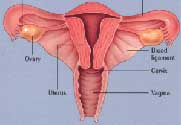Getting
Legal And Technical
Patients awaiting transplants have to go through a
union government agency which reviews the lists sent by hospitals. A thorough
check-up of both patient and donor is conducted before the operation.
In
cases of brain-dead patients lying in hospital intensive care units, several
investigations are conducted before the green signal is given for organ
harvesting. An authorised doctor will check the patient. Six hours later, an
independent check will be needed to confirm the earlier results. If confirmed
brain dead, and if the relatives are willing, the patient’s body parts are
removed.
Some organs like the kidneys can be taken from a cadaver. If a
person is interested in donating her body parts upon death, her first step must
be to take her family into confidence (unless the permission of relatives is
given, no organ harvesting from a dead person can be done). While alive, she
must sign a donor card, so that her body parts can be harvested after her death.
Eye banks and skin banks in many parts of the country arrange and organise
donations, but they have to be informed immediately. Apart from medical and
psychological problems, legal matters also crop up. The Rajya Sabha passed the
Transplantation of Human Organs Bill in May 1993. The Human Organ Transplant Act
of 1995 by the Government of India specifies the rules and regulations for the
procedure.
Awareness about body parts donation will also put an end to the
illegal trade in body parts where the poorer sections of society are forced into
selling blood, kidneys, etc for money. Organ donors give a gift of life, to the
sick ones.
THE GIFT OF
LIFE
The ovarian transplant is a
breakthrough in women’s health and fertility, says Dr Parul R
Sheth.

Presents don’t come easily. Especially the sort that
17-year-old Nita (name has been changed) received from her cousin.
Nita
was born with Turner’s Syndrome, a genetic disorder where women lack all
or both of their two sex chromosomes, XX. As as a result, they are unable to
mature sexually and are infertile.
Like Nita, 90 per cent of women with
Turner’s Syndrome have under-developed ovaries. Other problems associated
with the syndrome are reduced height, hearing loss, liver and thyroid
dysfunction, heart and kidney abnormalities.
A miracle
Although
the first problem corrected, with a dose of hormones, was Nita’s height,
her main concern was that she was unable to develop secondary sexual
characteristics like breasts. Neither could she menstruate. The only option was
an ovary transplant. The glitch was: The complicated surgery had never been
performed before.
“For two-and-a-half years, Nita, her family and
we, her doctors, were on the look out for an ovary donor. The search ended with
Nita’s cousin, a 26-year-old married woman with two children. She
willingly agreed to donate her ovary to Nita,” says Dr Pravin Mhatre, who
with a team of doctors, performed the successful ovarian transplant.
On
March 29, 2002 Nita underwent an operation at Kothari Hospital in Mumbai that
would change her life. She became one of the first live tissue organ recipients
of an ovary — thanks to her cousin.
Luckily for Nita, her
cousin’s ovary was a near-perfect match — 99 per cent. A team of
doctors, including gynaecologists, Dr Pravin and Dr Jyoti Mhatre, carried out
the transplantation. Microvascular surgeon Dr Bimal Modi and cardiovascular
surgeon Dr Shrial Doshi, performed the five-hour transplant surgery on Nita.
Nita exclaims, “For the first time, I feel like a complete
woman.” She has been ovulating since her operation, her hormone levels are
on their way to ‘normal’, and hopes are high that she will be able
to conceive a child at some point in the future. However, because the
transplanted ovary will produce the eggs, the biological mother of the child
will be her cousin.
Somewhere In China
Around the same time the Indian doctors were planning Nita’s
surgery, a 34-year-old woman in China received an amazing gift from her younger
sister. On March 5, at the Zhejiang Medical Science University in eastern China,
she received an ovary from her sister. Tan Fanfang had lost her own ovaries to
ovarian cancer, and her sister’s contribution was gratefully received.
What Does This Mean For You?

